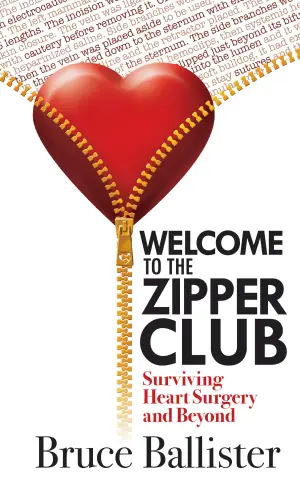What makes science puns so entertaining, and how can they enhance our appreciation for the subject? Science puns combine humor and education, making the complex world of science more accessible and enjoyable. These clever wordplays not only lighten the load of learning but also foster a community of curious minds eager to engage with scientific concepts—one joke at a time.
Table of Contents
The Science Behind the Humor
Why do we find puns funny? At their core, puns exploit multiple meanings of words or similar-sounding words to create humor. They often require a bit of intellectual engagement, stimulating the brain’s language-processing areas. In the realm of science, this engagement can lead to deeper understanding and retention of knowledge, making puns an invaluable learning tool.
Imagine walking into a biology class and hearing, “What’s a physicist’s favorite food? Fission chips!” Laughter arises, and suddenly the students are a little more engaged, reflecting on nuclear reactions as they snack on potato chips.
Popular Science Puns That Make Us Chuckle
Physics Puns
Physics puns can bring even the most serious learners to giggles. Take, for example: “I can’t trust an atom; they make up everything!” This playful joke highlights the fundamental atomic theory while poking fun at the idea of trust, effortlessly tying humor to science.
Another classic: “Why can’t you trust an atom? Because they make up everything!” This joke is an excellent way to introduce students to the foundational concepts of matter and composition while enjoying a shared laugh.
Chemistry Puns
Chemistry sets the stage for a treasure trove of puns. For instance, consider the pun, “I told a chemistry joke, but I got no reaction.” This light-hearted quip not only elicits laughter but also hints at the importance of reactions in the study of chemistry.
Here’s another: “Did you hear oxygen went on a date with potassium? It went OK!” This joke cleverly plays with the periodic table, making it an engaging entry point for high school students learning about the interactions of elements.
Biology Puns
Biology lends itself to incredible humor, especially when it comes to genetics. “Why are biologists the best at solving crimes? They always follow the DNA.” This play on the details within forensic biology emphasizes the importance of DNA analysis while triggering a chuckle.
A classroom studying ecology might hear, “What do you call an educated tube? A graduated cylinder!” This pun works as it brings together geometry and biology while naming an essential piece of lab equipment.
Incorporating Puns in Learning Environments
Captivating Student Engagement
Incorporating puns into teaching can energize classrooms. A teacher might fit a pun into lecture notes, enhancing engagement through laughter. On the first day of chemistry class, a teacher could say, “We have great chemistry, even if it’s just a reaction!” This remark sets a fun tone while establishing the significance of chemistry.
Icebreaker Activities
Using science puns as icebreakers can enhance a classroom’s atmosphere. Imagine a classroom full of seventh graders giggling as they share their favorite science puns. Teachers might encourage students to create their puns related to their current topic—such as environmental science puns—that can serve as an informal assessment of understanding.
Prompting Curiosity and Discussion
The humor inherent in science puns can spark discussions. Imagine a group of students sharing puns and transitioning to related science topics. A pun about carbon can spark discussions on carbon footprints, showcasing real-world applications of scientific principles.
Science Puns in Popular Culture
Blockbuster Films
Many blockbuster films showcase science puns that resonate with audiences. “Big Bang Theory,” a popular sitcom, often weaves scientific puns into its dialogue, making complex ideas digestible. The humor serves to bridge the gap between nerdy science concepts and mainstream appeal.
Comic Strips
Science puns frequently appear in comics. For example, “xkcd,” a webcomic beloved by science enthusiasts, regularly employs scientific humor. In one issue, a character might puzzle over a complex scientific phenomenon, and the punchline will cleverly incorporate a pun related to mathematics or physics. This approach attracts readers and reveals that science has its entertaining side.
Books and Literature
Books like “The Science Joke Book” compile a wide range of science-related puns and quips, becoming a staple for teachers and students alike. These collections showcase how humor can make learning enjoyable, offering a refreshing approach to serious subjects.
Creating Your Own Science Puns
Observe and Analyze
To create effective science puns, start by closely observing terms related to each scientific field. Search for terms that offer more than one meaning. For instance, in physics, terms like “work” can easily be manipulated into jokes about effort.
Use Wordplay
Incorporate creative wordplay, playing with similar-sounding terms or slang. For example, “What happens when you go to a chemist and get a bad reaction? You end up with ‘trouble at the lab!'”
Collaborate with Others
Writing puns can improve with collaboration. Brainstorm ideas in groups, combining different fields for crossover appeal. A hybrid pun that melds biology and mathematics could play like this: “Why was the math book sad? Because it had too many problems. But don’t worry, biology can help you solve them!”
The Educational Value of Science Puns
Enhancing Memory Retention
Research shows humor can significantly enhance memory retention. A pun related to a scientific concept can help students recall information by associating it with laughter. This approach creates lasting impressions that help them navigate future studies or exams.
Encouraging a Growth Mindset
When students encounter complex topics, a humorous approach can facilitate resilience and a growth mindset. Laughter turns lessons into opportunities, shaping upbeat attitudes toward learning.
Walking the Line: Science Humor in Professional Settings
In professional circles, thrilling scientific discussions can quickly blend into humor. Conferences and seminars may incorporate light-heartedness through puns, thereby easing tension and staving off boredom. Imagine a genetics conference where a presenter opens with, “If genes are inherited, does that make grandparents the original USBs?”
Balancing professionalism with humor not only demonstrates that scientists can be approachable but also emphasizes the real-world implications of scientific concepts.
Networking Opportunities
A clever science pun can serve as an effective conversation starter at networking events. Consider walking into a room and saying, “I’m positively charged about meeting you!” The recipient is likely to appreciate the encounter, setting the stage for memorable introductions and collaborations.
Final Thoughts
Science puns offer a powerful means for bridging education and humor, fostering immediate engagement with challenging topics. By lightening the mood, these puns enhance understanding while creating a sense of community among learners. Whether in the classroom, through popular culture, or during networking events, science puns enrich our relationship with scientific knowledge, inviting us all to share a laugh while we learn.
Additional Information
Science puns are not just clever wordplay; they often hold fascinating truths and connections in the world of science.
- The “Silly” Naming Convention: The field of chemistry has elements with whimsical names such as “bromine” and “dihydrogen monoxide” (water). Many of these names spring from the material’s properties and have roots in ancient languages, reflecting both tradition and humor.
- The Large Number of Elements: As of now, there are 118 confirmed elements on the periodic table, which provides an endless array of opportunities for puns. For instance, tell someone they’re “boron” if they sound bored; it’s an amusing way to lighten the mood!
- Quantum Mechanics Finally Explains: Quantum physics turns the well-known phrase “I love you to the moon and back” into something even grander. Quantum entanglement instantly links two people, no matter how far apart, a fascinating idea for anyone fond of clever, heartfelt jokes.
- Molecular Biology in Humor: The term “RNA” not only stands for ribonucleic acid but can be humorously twisted into “Are Not Accurate,” which becomes a joke in a conversation about cell replication errors.
- Botanical Wordplay: The term “photosynthesis” may sound serious. However, if you break it down into “photo” and “synthesis,” you can spin it into a pun about how plants only want to be famous for their looks—getting all their attention from sunlight.
- The Phases of Matter: The different phases of matter—solid, liquid, gas—offer a wealth of pun potential. You can say a solid is a great friend because it’s always “there” to support you, while a gas is that unreliable friend who “vanishes” at a party.
- Fungi Humor: Fungi are fascinating organisms, but did you know that when jokingly referred to as “fun guys,” they’re making light of their own biological importance in ecosystems? It’s a pun that keeps on giving!
- Elemental Wordplay as Social Commentary: The element “Iron” symbolizes strength, leading to puns like “I like large Fe in my coffee,” subtly combining a love for caffeine with a nod to the periodic table.
- Physics Puns are Universal: In physics, you might hear the pun “I’m attracted to you” when discussing gravity. This pun cleverly illustrates the universal laws while also enchanting the audience with its simplicity.
- Jokes Like “Amped Up” and “Current Events”: Electric puns such as “I’m feeling charged” or “Those are shocking revelations” bridge everyday language with scientific concepts, helping people understand new concepts while having fun.
Frequently Asked Questions (FAQs) Related to Science Puns
Q. What do you call an educated tube?
A. A graduated cylinder.
Q. Why don’t scientists trust atoms?
A. Because they make up everything!
Q. What did the biologist wear to impress their date?
A. Designer genes.
Q. Why did the physics professor break up with the biology professor?
A. There was no chemistry.
Q. How does a physicist relax?
A. They go to the string section.
Q. What is a chemist’s favorite type of music?
A. Acid rock.
Q. Why are chemists excellent at solving problems?
A. They have all the solutions.
Q. What does a cloud wear under its raincoat?
A. Thunderwear.
Q. Why can’t you trust an atom?
A. Because they are always splitting!
Q. What did one ion say to another?
A. I’ve got my ion you!
Conclusion
Science puns bring a fun twist to learning and discussing complex topics. They make the often serious world of science more approachable and enjoyable. Whether you’re a student hoping to impress your classmates or just someone who enjoys a good laugh, these puns can lighten the mood and spark curiosity. So go ahead, share a few science puns; they might be the spark that ignites someone’s interest in the subject!







